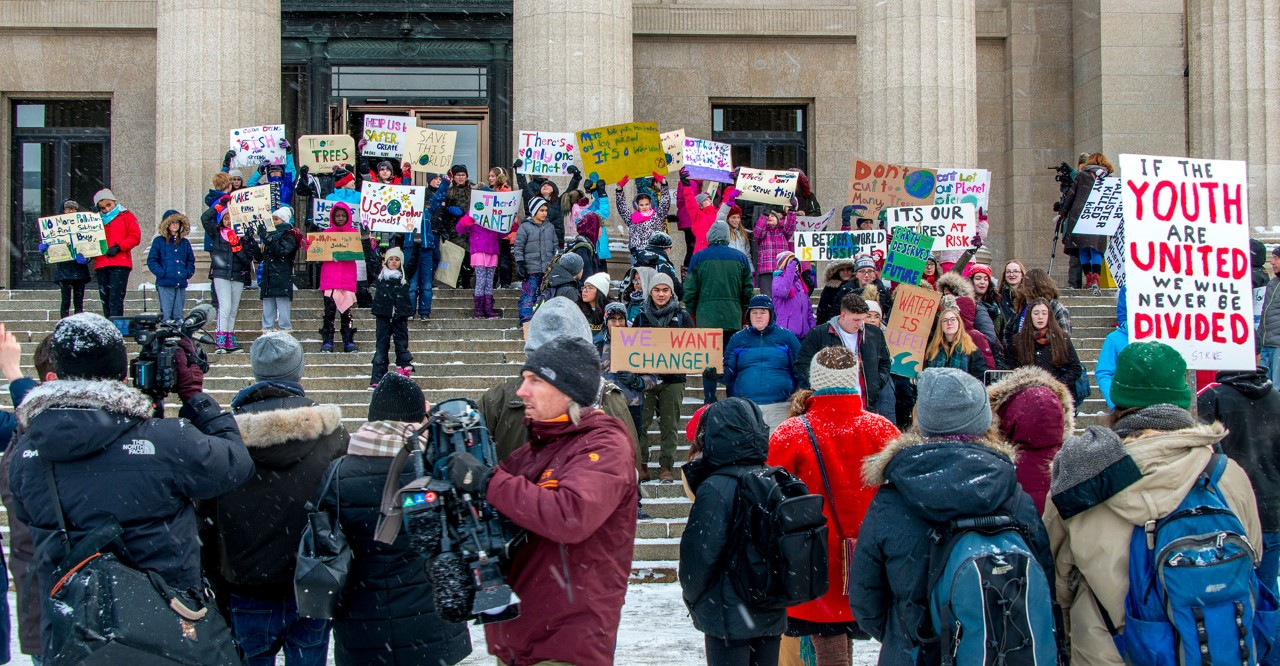École St. Germain Report to the Community
École St. Germain Leads the Way in Fighting Climate Change
École St. Germain's EnviroClub brought one of the most important global issues to centre stage last January when some of our EnviroClub members participated in a climate strike. Several students delivered speeches at the strike and left those speeches at the Legislature, in letter format, to the attention of the Premier Brian Pallister. The Premier personally responded to the letters and sent the Minister of Sustainable Development, Rochelle Squires, to visit the school in March. She took questions from the students and offered them a direct link for their voice to be heard by the government.
In the Spring, the EnviroClub also had the privilege of receiving a visit from the Environment Critic, MLA Rob Altemeyer. In a productive 90-minute session, he showed them a PowerPoint that challenged them to predict and then learn the main sources of climate pollution in Manitoba, and then to come up with solutions to this problem. The presentation was very interactive and engaging.
As well, in January, the EnviroClub students participated in a Climate Change Conference at École St. Germain, organized in collaboration with the organization Climate Change Connection. Students learned about how to help the climate through presentations, games and hands-on activities.
Finally, students created their own solutions for how to help our planet based on what they learned throughout the year, and by the end of June 2019, they created 3 main action goals to consider for St. Germain:
- Learn about composting
- Banning single use plastics
- Sustainable Transportation initiatives
Improving Reading Through Multisensory Approaches
Social Emotional Learning
Our emotional state has a significant impact on our capacity to learn. As educators, we know this, and as a result, we invest a lot of time in teaching students different ways to maintain a stable emotional state in order to allow them to maximize their full learning potential. Last year, staff continued to implement strategies from the Zones of Regulation program in classrooms. In many classrooms, this was complimented by explaining how the brain works when we are in control (big brain) and when we do not have control of our emotions (little brain).
Recognizing one's emotions is an important first step; however, students were also taught strategies, including breathing and movement, that would allow them to more easily regain control of their emotions when they are in an undesirable emotional state. Applying these strategies appropriately is a very important life skill and we want our students to understand these concepts and strategies from an early age.
Along with teaching these strategies in the classroom last year, staff worked collaboratively with the school psychologist and learned about sources of behaviour, how behaviour is a form of communication, and effective classroom strategies that lead to positive behaviours. Teachers will continue to apply and expand upon their learning in this area.


